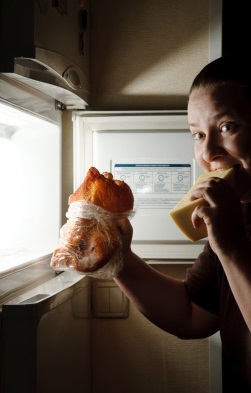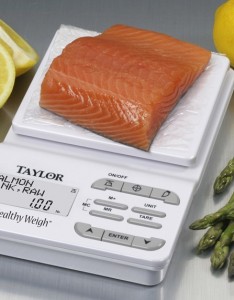Sports nutrition is full of half-baked truths that often keep us from figuring out just how to eat to maximize muscle gains or fat loss or both. One reason for the confusion is that what people have been doing all along often conflicts with what the latest research recommends.
Here we tackle the 10 biggest carbohydrate and protein myths and untangles the misinformation that might be holding you back from shaping your next 10 pounds of lean mass. Read, apply and enjoy your new muscle.
Carb Myth #1: Carbohydrates Make You Fat
The real culprit is excess calories. Calories, the fuel derived from all three macronutrients carbohydrates, protein and dietary fat increase the body’s ability to manufacture bodyfat. Carbs have gotten a bum rap because research shows that lower-carbohydrate diets are effective for obese individuals, who are extremely overweight and seldom exercise. For the individual trying to build metabolically active muscle tissue, carbs are a must-have. They fuel the body for exercise, help drive protein into muscles for growth and prevent the breakdown of hard-earned muscle mass. In addition, weight-training individuals store a disproportionate amount of their carbohydrate intake within muscles, called muscle glycogen. Only after glycogen stores are full will carbs seriously impact bodyfat stores.
Myth Buster:
How many carbs you should eat depends on your metabolism and how hard you train, but a good starting point is about 2 grams per pound of bodyweight per day.
Carb Myth #2: Eating Carbs At Night Make You Fat
 Many dieters restrict their carb intake at night, limiting them-selves to protein powder, poultry, fish and vegetables sometime after 5 p.m. The belief is that carbs eaten at night will unequivocally be stored as bodyfat, which is generally true, as insulin sensitivity decreases at night. But here’s the problem: If you train after work at 7 p.m. and finish by 9, you must eat carbohydrates in your post-training meal to kick-start the muscle-building process. If you avoid carbohydrates you’ll fail to support the growth process and, worse, it could increase your cortisol, a hormone that can lower testosterone levels and chew away muscle mass, causing a drop in your metabolic rate.
Many dieters restrict their carb intake at night, limiting them-selves to protein powder, poultry, fish and vegetables sometime after 5 p.m. The belief is that carbs eaten at night will unequivocally be stored as bodyfat, which is generally true, as insulin sensitivity decreases at night. But here’s the problem: If you train after work at 7 p.m. and finish by 9, you must eat carbohydrates in your post-training meal to kick-start the muscle-building process. If you avoid carbohydrates you’ll fail to support the growth process and, worse, it could increase your cortisol, a hormone that can lower testosterone levels and chew away muscle mass, causing a drop in your metabolic rate.That’s the biggest concern, because when the metabolic rate declines, the body becomes really good at storing bodyfat.
Myth Buster:
Consume 50 grams of carbohydrates (in addition to protein) to kick-start the rebuilding process in the meal following your workout. If you don’t gain bodyfat from eating that much, boost it to 70-80 grams.
Carb Myth #3: Carbs Don’t Build Muscle
Carbohydrates directly support muscle-building by fueling muscles, helping them to remain anabolic. Energy-starved muscles quickly fall out of an anabolic state and fail to grow. Carbs also create a special hormonal environment that plays a critical role in growth they initiate the release of insulin, which increases protein uptake by muscles. Insulin also helps muscles take in testosterone, the body’s chief muscle-building hormone.
Myth Buster:
Besides eating enough carbs for the day, eat an adequate portion in your post-training meal, anywhere from 70-100 grams for growth and repair.
Carb Myth #4: You Have To Eat Low GI Carbs To Get Ripped
The glycemic index is a tool that rates carbohydrates based on the speed at which they digest. In theory, faster-digesting carbs are more efficient at stimulating the fat-storing process. However, combining high-protein foods with fast-digesting carbs or fiber-rich vegetables such as broccoli, cauliflower, spinach, mushrooms and green beans skews the index rating. For example, rice cakes which are digested very fast digest markedly slower when combined with sliced turkey, fat-free cheese or peanut butter, and even more slowly if you add a small portion of vegetables. Combinations like this change the index rating on carbs, relegating the glycemic rating idea to mythical status.
Myth Buster:
The best meals for building mass and shedding fat come from combining different foods starchy carbs, protein and vegetables along with the small amounts of fat naturally occurring in protein foods.

Carb Myth #5: Muscles Have To Be Fully Carb-Loaded For Maximal Muscle Growth
Muscle glycogen the collection of stored carbohydrates within muscles provides fuel for hard training and supports recovery, but glycogen reserves don’t have to be topped off to maximize growth. You can run a car all-out on half a tank of gas, and you can train like Mr. O on less than “full” glycogen stores. Other factors play a large role in the muscle-building process, such as protein intake and meal timing: Eat 5-7 times a day to maximize nutrient uptake and absorption.
Myth Buster:
Eat a moderate-carbohydrate snack, about 30-40 grams of carbs with 20 grams of protein, an hour before training. A small bowl of oats with protein powder mixed in is a favorite.
Protein Myth #1: The Sky’s The Limit
 Muscleheads continue to eat more and more protein yet often miss the mark in understanding what causes growth. Sure, protein is a must, but higher-protein diets are sometimes scant in carbohydrates. For muscle-building, you’re better off eating more carbohydrates than protein because the two nutrients work synergistically, upgrading the ability to drive aminos into muscles and resulting in growth.
Muscleheads continue to eat more and more protein yet often miss the mark in understanding what causes growth. Sure, protein is a must, but higher-protein diets are sometimes scant in carbohydrates. For muscle-building, you’re better off eating more carbohydrates than protein because the two nutrients work synergistically, upgrading the ability to drive aminos into muscles and resulting in growth.Myth Buster:
Start with a minimum of 2 grams of carbohydrate and 1 gram of protein per pound of bodyweight per day (see Protein Myth #3 for exceptions).
Protein Myth #2: All Protein Is The Same
Nope, some proteins digest faster than others. Whey protein, egg whites and some fish rapidly reach the bloodstream while casein protein, red meat, poultry and whole eggs are slower. Faster-digesting proteins are best in the morning to reverse the overnight fast when the body sometimes falls out of a growth state. They’re also best before and after training, when the body needs immediate sources of protein to help prevent muscle breakdown. At other times of day, slower-digesting proteins do just fine.
Myth Buster:
Have your whey protein shakes early in the day and after a workout, and save casein for later in the day.
Protein Myth #3: 1 Gram Per Pound Of Bodyweight Rules The Day
 We’re told the body needs a gram of protein per pound of bodyweight daily. Guess what? Though fairly accurate, that number is an estimate. When calories drop, such as when you eat drastically less fat or reduce carbs to shed bodyfat, you’ll need more protein, upward of 1.5 grams per pound, to keep from burning muscle tissue for energy. Training intensity, frequency and duration play a role, too. The harder you train and the more muscle damage you incur, the more protein you need to rebuild those damaged fibers. If you train six days a week, you’ll need more protein than if you trained just four times, and if your workouts are longer in duration, you might need to bump your protein above the I-gram benchmark.
We’re told the body needs a gram of protein per pound of bodyweight daily. Guess what? Though fairly accurate, that number is an estimate. When calories drop, such as when you eat drastically less fat or reduce carbs to shed bodyfat, you’ll need more protein, upward of 1.5 grams per pound, to keep from burning muscle tissue for energy. Training intensity, frequency and duration play a role, too. The harder you train and the more muscle damage you incur, the more protein you need to rebuild those damaged fibers. If you train six days a week, you’ll need more protein than if you trained just four times, and if your workouts are longer in duration, you might need to bump your protein above the I-gram benchmark.Myth Buster:
Many who complain of inferior muscle recovery might just need more protein between 1.2 grams and 1.5 grams per pound of bodyweight daily.
Protein Myth #4: You Need Protein Supplements To Grow
Though fairly economical and extremely convenient, protein powders don’t have to be part of a muscle-building diet. Muscle-building can be achieved with real food. Just ask three-time Arnold Classic champion Jay Cutler: When he started out, he couldn’t afford supplements, so he consumed up to 50 egg whites a day and a couple of pounds of chicken, compliments of the farm he lived on as a 19-year-old. In the next two years, eating nothing but egg whites, chicken, oatmeal, pasta and potatoes, Jay gained an amazing 50 pounds of mass. Powders are good, but growth still boils down to eating sufficient protein, carbohydrates and calories to repair and fuel the body.
Myth Buster:
For convenience, many trainees find that alternating a solid meal with a protein shake is an ideal way to eat up to seven times a day.
Protein Myth #5: Protein Can’t Make You Fat
Excess anything protein, carbohydrates or dietary fat can make you fat. If you require 2,600 calories daily, meet that requirement yet still eat a chicken meal and a protein shake above that amount, the excess protein will be sent to the liver, converted to glucose and eventually make its way to fat stores. Though protein seems to be a little less efficient at making bodyfat than dietary fat and carbohydrates, don’t fall into the trap of believing protein is exempt from making and storing bodyfat.
Myth Buster:
Don’t just count protein and carbs throughout the day; count all calories to ensure you won’t exceed your daily caloric requirements.
No comments:
Post a Comment